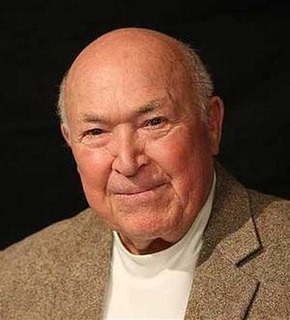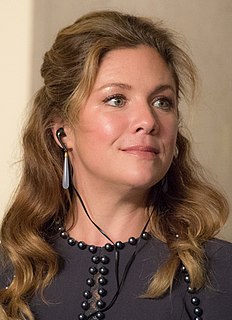A Quote by David Brin
Self-righteous people can talk themselves into forgetting they are part of a civilization. They can then feed on that culture, bringing it down. It's happened many times in the past. It could happen to us.
Related Quotes
you come home, and everyone talks at once and everyone asks questions, but no one waits for the answers.Instead they talk about themselves, what they've been up to, what they're going to do next, as if you're a photo on the wall.And then they talk to one another, forgetting you've jsut flown in, forgetting you're in the backseat, forgetting they've already said it all.
What self-righteous persons take to themselves, is the same work that Christ was engaged in when He was in His agony and bloody sweat, and when He died on the cross, which was the greatest thing that ever the eyes of angels beheld. Christ could accomplish other parts of this work without cost; but this part cost Him His life, as well as innumerable pains and labors. Yet this is the part which self-righteous persons go about to accomplish for themselves.
Self-righteousness is unavoidable. You can either be a self-righteous Pharisee where you think you are better than everyone else or you can be a self-righteous pagan who thinks you are better than the Pharisee. If you are a self-righteous person, I could become very self-righteous thinking that you're self-righteous and you think you're so good but I know you're bad. I know I'm bad so that makes me better than you.
An important part of building a new culture was allowing people to complain about their past. At first, the more they complained, the worse the past would seem. But by venting, people could start to resolve the past. By bitching and bitching and bitching, they could exhaust the drama of their own horror stories. Grow bored. Only then could they accept a new story for their lives. Move forward.
And there is also the paradox that the dominating culture imbues the Indian past with great meaning and significance; it is valued more because it is seen as part of the past. And it is the romantic past, not the present, that holds meaning and spiritual significance for so many members of the dominating culture. It has seemed so strange to me that the larger culture, with its own absence of spirit and lack of attachment for the land, respects these very things about Indian traditions, without adopting those respected ways themselves.
I’ve always thought that if comics are a part of pop culture [then] they should reflect pop culture, but a lot of the time comics, superhero comics especially, just feed on themselves. For me, comics should take from every bit of pop culture that they can; they’ve got the same DNA as music and film and TV and fashion and all of these things.
Once we have forgiven, however, we get a new freedom to forget. This time forgetting is a sign of health; it is not a trick to avoid spiritual surgery. We can forget because we have been healed. But even if it is easier to forget after we forgive, we should not make forgetting a test of our forgiving. The test of forgiving lies with healing the lingering pain of the past, not with forgetting the past has ever happened.
God will allow us to follow self-help, self-improvement programs until we have tried them all, until we finally come to the honest confession, ‘I can't do it. I can't be righteous in my own strength!’ It is then, when we admit our utter powerlessness, that we find hope. For it is then when the Lord intervenes to do a work that we could not do for ourselves.
In my experience, it is Affection that creates this taste, teaching us first to notice, then to endure, then to smile at, then to enjoy, and finally to appreciate the people who 'happen to be there.' Made for us? Thank God, no. They are themselves, odder than you could have believed and worth far more than we guessed.
We tell girls to be themselves, but then they have role models - sometimes too many role models - in popular culture who incarnate that kind of disconnectedness from oneself. We are taught to self-hate; we are taught to doubt. Our culture doesn't help us recognize ourselves as amazing beings without changing ourselves.
You can’t say ‘if this didn’t happen then that would have happened’ because you don’t know everything that might have happened. You might think something’d be good, but for all you know it could have turned out horrible. You can’t say ‘If only I’d…’ because you could be wishing for anything. The point is, you’ll never know. You’ve gone past. So there’s no use thinking about it.
It is a characteristic of any decaying civilization that the great masses of the people are unconscious of the tragedy. Humanity in a crisis is generally insensitive to the gravity of the times in which it lives. Men do not want to believe their own times are wicked, partly because it involves too much self-accusation and principally because they have no standards outside of themselves by which to measure their times.
Not all that is presented to us as history has really happened; and what really happened did not actually happen the way it is presented to us; moreover, what really happened is only a small part of all that happened. Everything in history remains uncertain, the largest events as well as the smallest occurrence.


































